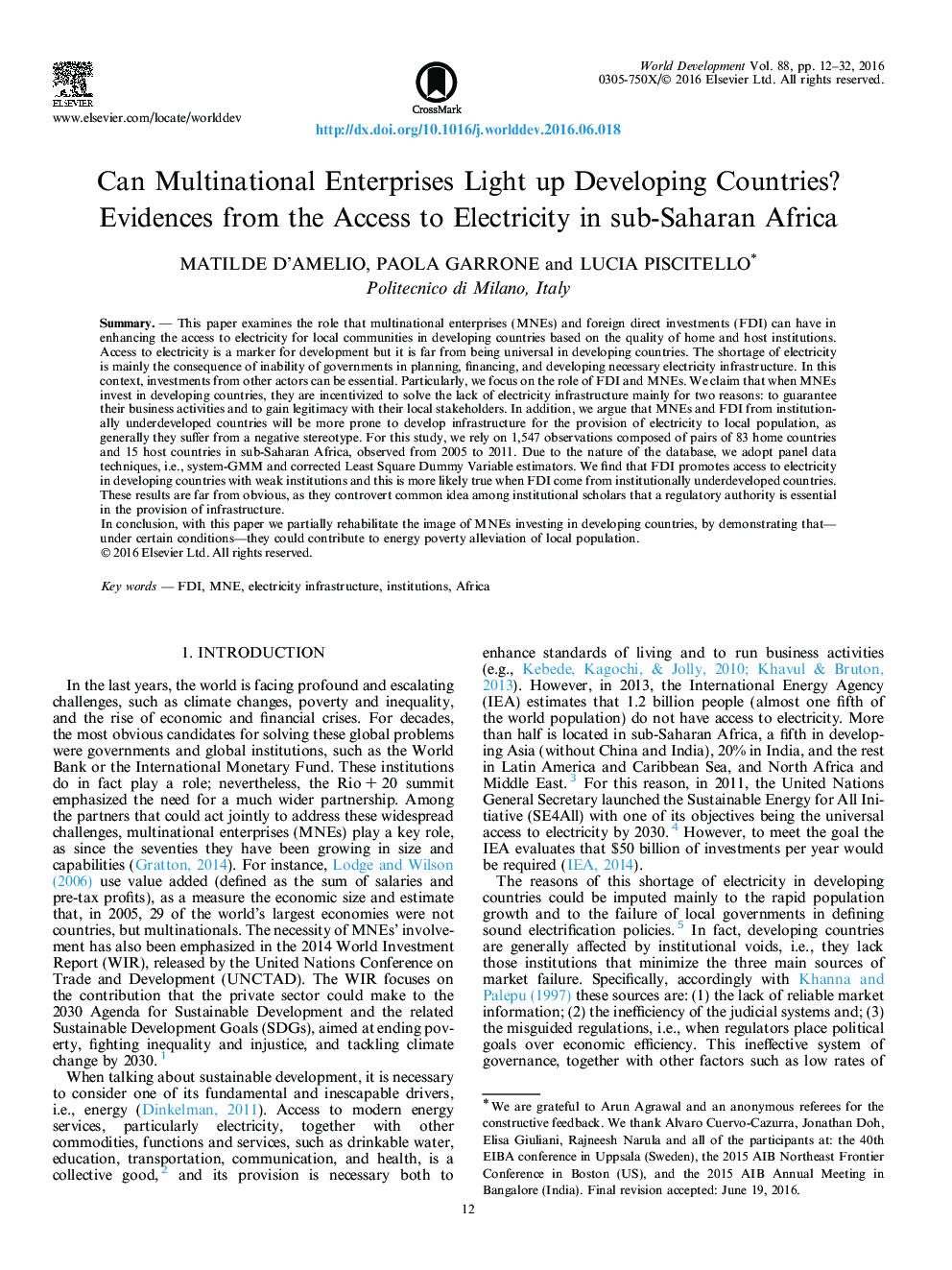| کد مقاله | کد نشریه | سال انتشار | مقاله انگلیسی | نسخه تمام متن |
|---|---|---|---|---|
| 990529 | 1481130 | 2016 | 21 صفحه PDF | دانلود رایگان |
• MNEs and FDI can contribute to the electrification of developing countries.
• MNEs’ involvement in electrification is driven by operational and legitimacy needs.
• Positive impacts are more likely if local institutions are weak.
• MNEs’ effectiveness also depends on the institutional quality of home country.
SummaryThis paper examines the role that multinational enterprises (MNEs) and foreign direct investments (FDI) can have in enhancing the access to electricity for local communities in developing countries based on the quality of home and host institutions. Access to electricity is a marker for development but it is far from being universal in developing countries. The shortage of electricity is mainly the consequence of inability of governments in planning, financing, and developing necessary electricity infrastructure. In this context, investments from other actors can be essential. Particularly, we focus on the role of FDI and MNEs. We claim that when MNEs invest in developing countries, they are incentivized to solve the lack of electricity infrastructure mainly for two reasons: to guarantee their business activities and to gain legitimacy with their local stakeholders. In addition, we argue that MNEs and FDI from institutionally underdeveloped countries will be more prone to develop infrastructure for the provision of electricity to local population, as generally they suffer from a negative stereotype. For this study, we rely on 1,547 observations composed of pairs of 83 home countries and 15 host countries in sub-Saharan Africa, observed from 2005 to 2011. Due to the nature of the database, we adopt panel data techniques, i.e., system-GMM and corrected Least Square Dummy Variable estimators. We find that FDI promotes access to electricity in developing countries with weak institutions and this is more likely true when FDI come from institutionally underdeveloped countries. These results are far from obvious, as they controvert common idea among institutional scholars that a regulatory authority is essential in the provision of infrastructure.In conclusion, with this paper we partially rehabilitate the image of MNEs investing in developing countries, by demonstrating that—under certain conditions—they could contribute to energy poverty alleviation of local population.
Journal: World Development - Volume 88, December 2016, Pages 12–32
